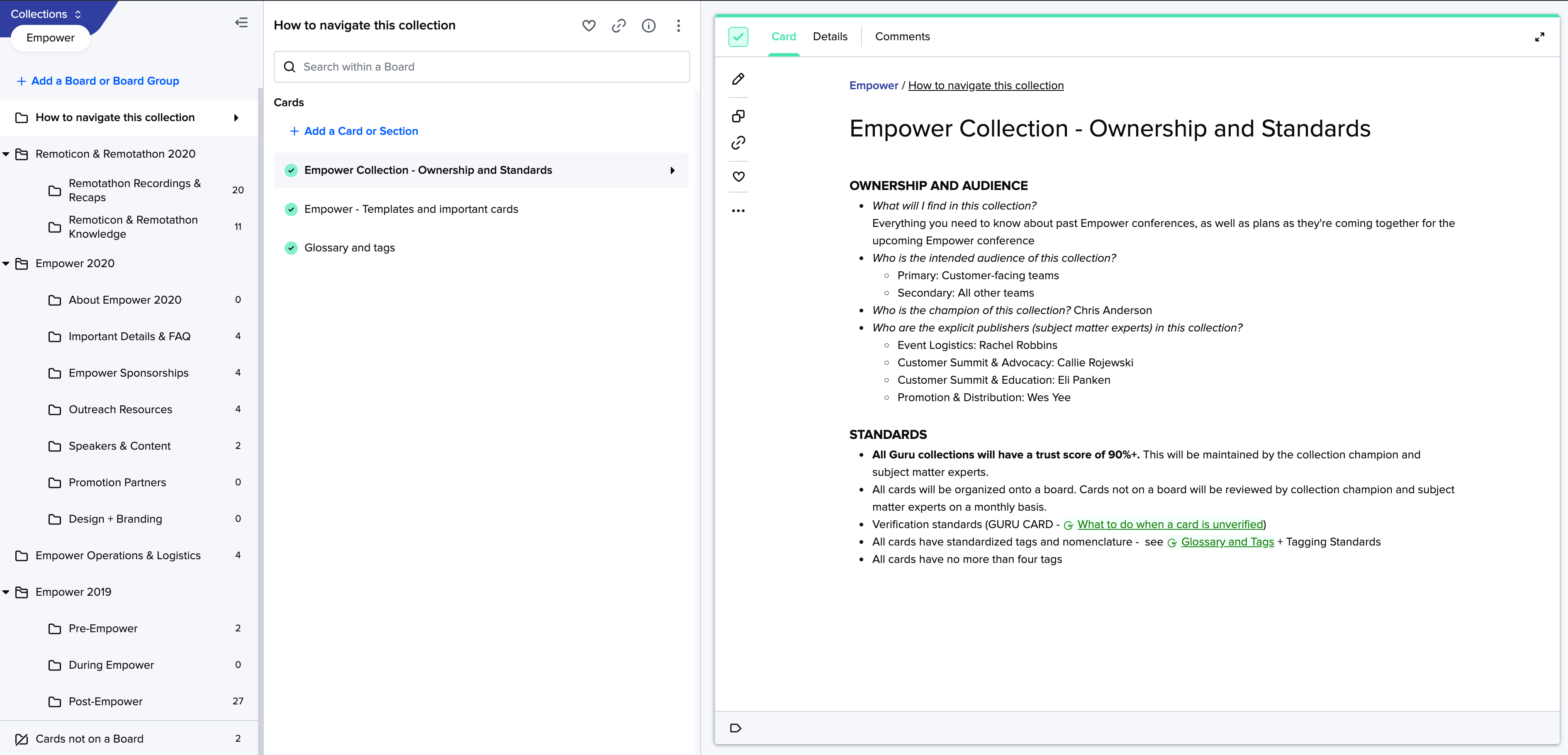Hi Everyone ![]() Molly from Guru’s Sales Engineering team here!
Molly from Guru’s Sales Engineering team here!
Can you believe SPRING ![]()
![]() is almost here?! With spring comes warm weather, mid-day walks, and …. CONFERENCES! Companies who host their own conferences have to keep their employees informed with information like:
is almost here?! With spring comes warm weather, mid-day walks, and …. CONFERENCES! Companies who host their own conferences have to keep their employees informed with information like:
- Location and time details of the event - Where do I need to be and when?
- Schedule of events - Who are our speakers and what will they be talking about?
- Talking points - What are some conversations I can spark up with attendees?
- FAQs - Are there questions you’re guaranteed to be asked?
We’ve brainstormed a few ideas on how putting this information in Guru can ensure your team is knowledgable when the very first Welcome Event begins:
- Knowledge Alert - Send a knowledge alert the day before the event to ensure your team has all the details regarding where they need to be and when and TRACK that they’ve read it!
- Slack / MS Teams Integration - Quickly answer questions before and during the event by replying to messages with Guru cards. Does a new question come up? Easy! Capture it and store it in Guru so the rest of your team has access.
- iOS / Android App - If you’re getting asked questions while on the show floor or at lunch with a customer, quickly look up the answer on your mobile device
We’d love to hear from you ![]() ...
...
 How have YOU used Guru to successfully inform your team with knowledge about your conference or an internal team event?
How have YOU used Guru to successfully inform your team with knowledge about your conference or an internal team event? 




